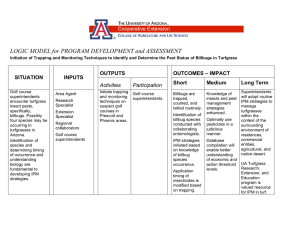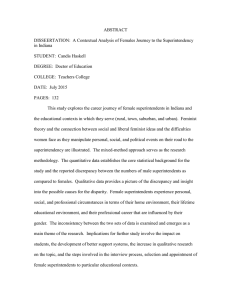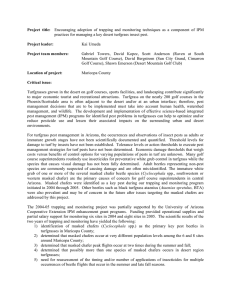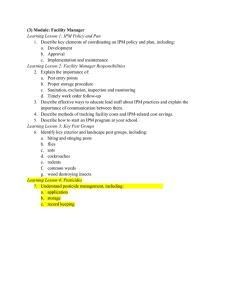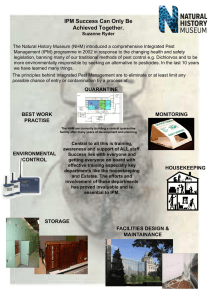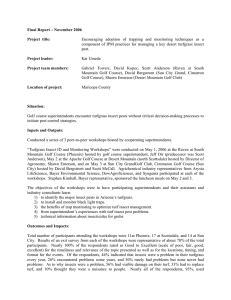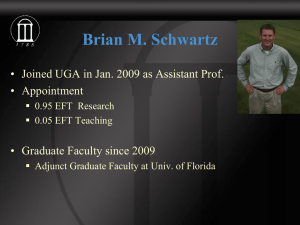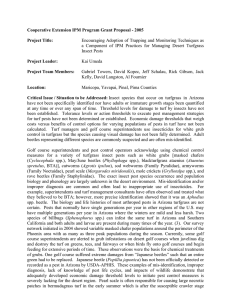LOGIC MODEL for PROGRAM DEVELOPMENT and ASSESSMENT
advertisement
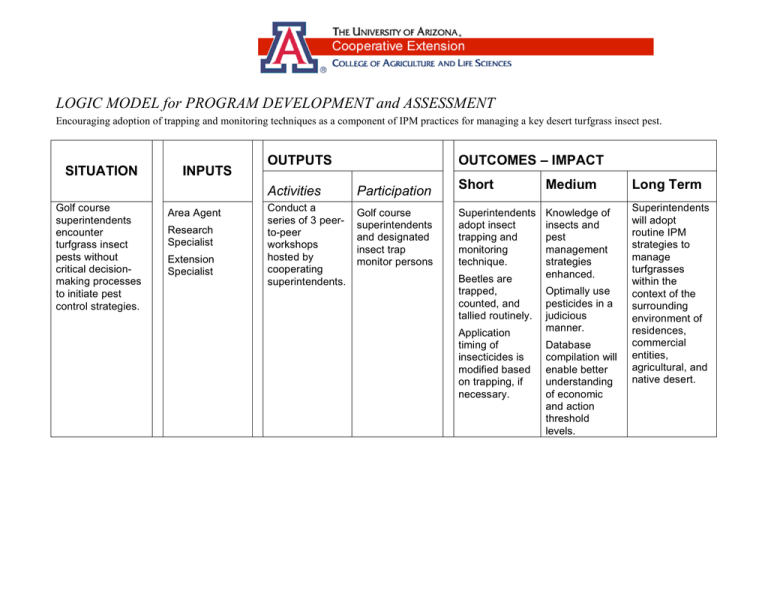
LOGIC MODEL for PROGRAM DEVELOPMENT and ASSESSMENT Encouraging adoption of trapping and monitoring techniques as a component of IPM practices for managing a key desert turfgrass insect pest. SITUATION Golf course superintendents encounter turfgrass insect pests without critical decisionmaking processes to initiate pest control strategies. INPUTS Area Agent Research Specialist Extension Specialist OUTPUTS OUTCOMES – IMPACT Activities Participation Conduct a series of 3 peerto-peer workshops hosted by cooperating superintendents. Golf course superintendents and designated insect trap monitor persons Short Medium Long Term Superintendents adopt insect trapping and monitoring technique. Knowledge of insects and pest management strategies enhanced. Superintendents will adopt routine IPM strategies to manage turfgrasses within the context of the surrounding environment of residences, commercial entities, agricultural, and native desert. Beetles are trapped, counted, and tallied routinely. Application timing of insecticides is modified based on trapping, if necessary. Optimally use pesticides in a judicious manner. Database compilation will enable better understanding of economic and action threshold levels.
